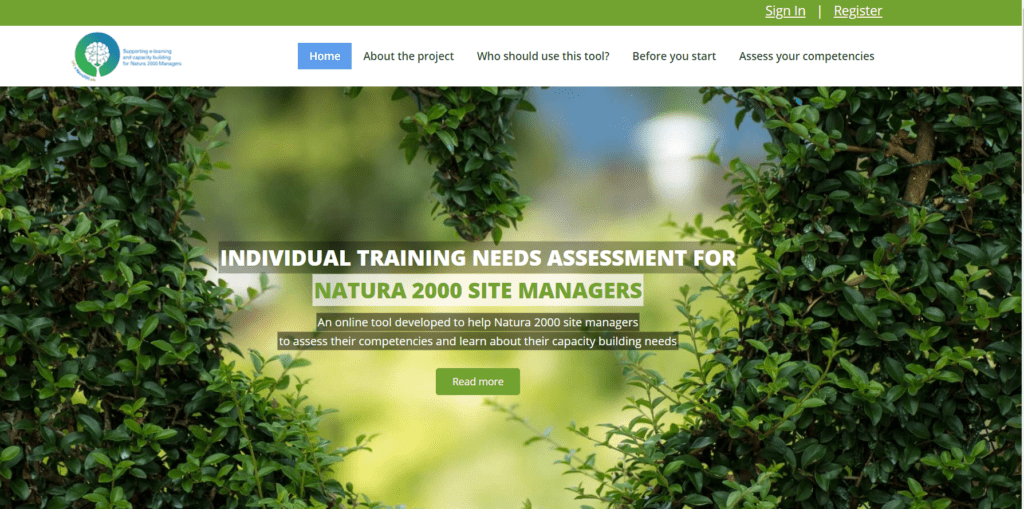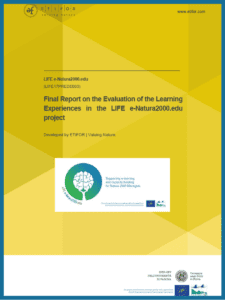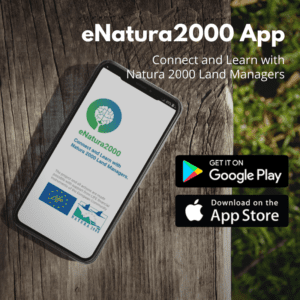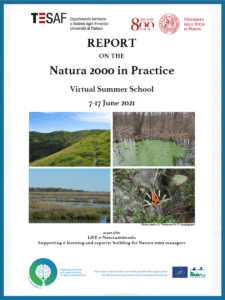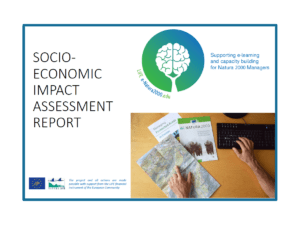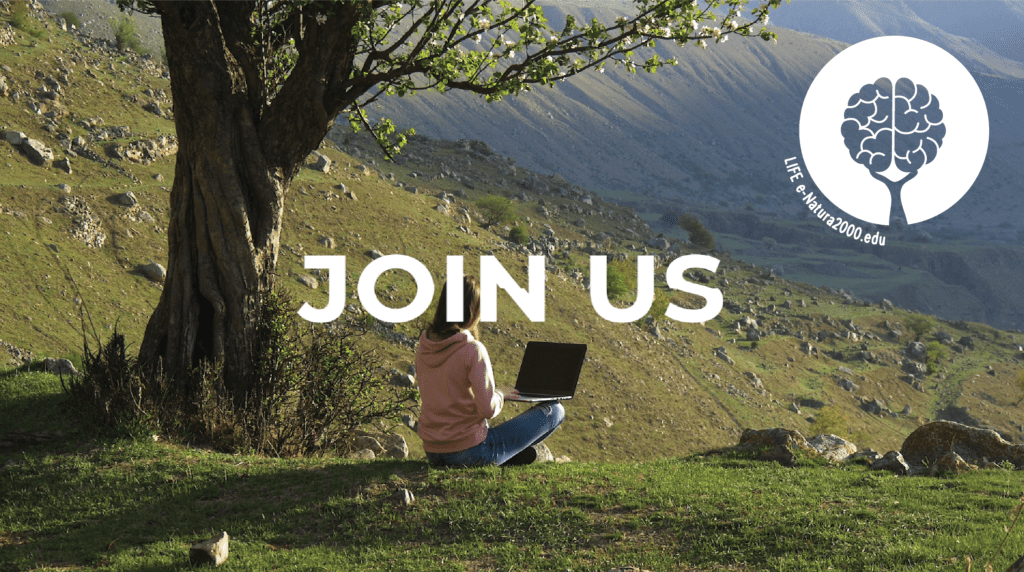Register now for the EUROPARC 2021 Conference!
Register now for the EUROAPRC 2021 Conference: THE event for nature professionals in Europe. Join us online on the 6th and 7th of October.
The EUROPARC Conference 2021 is launched! #EUROPARC2021
The long wait is over: you can now register for the EUROPARC online Conference 2021 “Parks in the Spotlight: Powered by People; Inspired by Nature” on the 6th and 7th of October. We’ve worked hard to create a programme that will not just inspire nature professionals, but also give them the opportunity to actively participate.
Of course, EUROPARC members enjoy a 50 euro discount upon registering, but not just that:
When registering 3 people from a member organisation, the 3rd person can attend for free!
Additionally, we also want to empower the next generation of nature professionals, so young people under 26 will be able to join the conference for the special rate of 50 euros.
Now, keep on reading to find out what we have in store for you…
Keynote speakers
On Tuesday the 6th of October we will start the day off with 3 inspiring keynote speakers. These experts will consider, from differing perspectives, how the Parks and Protected Areas community need to respond to this spotlight they are under. We will be joined by:
Ladislav Miko…
… an environmental expert and politician. Ladislav is the former Minister of Environment in the Czech Republic in 2009. Between 2011 – 2017 he served as the Deputy Director General of Directorate General for Health and Food Safety (DG SANCO) with responsibilities for the food chain. From January 2018 he was appointed as a Head of EU Representation in Slovakia. Learn more about him here.
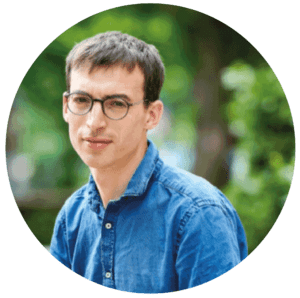
Dr. George Holmes
Dr. George Holmes…
… is an Associate Professor of Conservation and Society at the School of Earth and Environment, University of Leeds, United Kingdom. His research is focused on conservation and conservationists, and the interaction between Protected Areas and local communities in two ways: how conservation regulations may affect local people’s lives and livelihoods and how local people can in turn shape Protected Area policies to their own liking. Learn more about him here.
Frans Schepers…
… is the co-founder and Managing Director of Rewilding Europe since 2011. Frans graduated in forestry, land and water management and worked in various positions in nature conservation, starting in Dutch government. From 2000-2014 he worked at WWF Netherlands where he was responsible for international conservation programmes. He is specialised in rewilding large landscapes, in particular in Africa, Europe and Central Asia. Learn more about him here.
Participatory workshops
Good ideas are created in cooperation – that is something we believe in at EUROPARC!
That is why we have created workshops with participatory elements. It’s time to get out your thinking caps, as you will not just be observers, but also “doers”. You can help work on challenges and solutions to all topics related to Parks management like:
- Climate Change
- Sustainable Tourism
- Youth Involvement
- Building Partnerships
- Sustainable Agriculture
- Ecosystem Restoration
- Health
- Technology
- Visitor Management
- Periurban Parks
Plus, you do not need to worry about missing a workshop because it overlaps with another one: ALL workshops will be repeated on BOTH days! The hard decision now will be, deciding for which two workshops you will sign up…
Find all the info on workshops here!
Speakers’ Corner
EUROPARC knows like no other, that our members and those working out in the field are constantly involved in innovative projects. That is why we want to open the stage FOR YOU! In the morning of October 7, we are putting the spotlight on our delegates. In the program, a one-hour session is open to conference participants to come and shine a light on their work. The goal is to increase awareness about our members’ work and facilitate networking among our community.
Concretely, Delegates are welcome to present the highlights of their project in a 5 minutes/3 slides format on the main stage. Presentations must be made in English. Speakers’ Corner is exclusively for delegates! You will receive the link to sign up when registering for the conference. The deadline to sign up for the Speakers’ Corner is 21st of September, so be sure to register by then!
Connect & Network
Of course, it wouldn’t be a EUROPARC Conference without networking! That is why Conference Delegates will have the opportunity to see who else is attending the Conference and write them a message in the delegates area on the website. Additionally, we’ve created a LinkedIn Group “EUROPARC Conference 2021 Delegates” that is exclusive to those participating in the Conference. We welcome delegates to share interesting information there and connect before and after the Conference with friends old and new.
So, what are you waiting for? Register now for the EUROAPRC 2021 Conference! Join us on the 6th and 7th of October for two half days full of inspiration, networking and, of course, fun. We look forward to welcoming you on Zoom!
The face to face Conference originally planned to take place in Leeuwarden, The Netherlands has been postponed to 2023. You can find more information here.
LIFE e-Natura2000.edu: Final Report
The LIFE preparatory project LIFE e-Natura2000.edu explored the potential of building new approaches and learning methods to improve knowledge and capacity amongst people with responsibilities in Natura 2000 management in both public and private land, over a three-year period (2019-2021). ‘Final Report on the Evaluation of the Learning Experiences in the LIFE e-Natura2000.edu project’ provides the results of and summarises the main impacts of the project.
The LIFE.edu project analysed training needs and made available new tools to access information and learn about the skills required for Natura 2000 management and policy implementation.
In this Report you will be able to see many interesting insights connected to the main learning components delivered within this project and that include:
- Online Training Needs Assessment tool
- Online learning courses
- Virtual Summer School and
- LIFE e-Natura 2000 Smartphone App
- Communication tools
Online Training Needs Assessment tool
This online tool was developed within the project to help Natura 2000 site managers to assess their competencies and learn about their capacity building needs.
Online learning courses
Between March and June 2020 three online courses took place and consisted of different learning modules. Each course counted about 20-25 participants and foresaw an in-presence conclusive workshop. Unfortunately, the period coincided with the first peak of the COVID-19 outbreak in Europe. As a result, only one in-presence workshop was carried out instead of three.
The three competencies courses included:
- Competent inclusive communication, led by EUROPARC;
- Building alliances for Natura 2000 management, led by FUNGOBE;
- Applied conservation biology, led by ProPark
The post project evaluation shows that 84% of participants would recommend the learning experience to colleagues or other people working with or involved in Natura 2000 management and 58% of respondents are willing to pay between 50 and 200€ for such a course in the future.
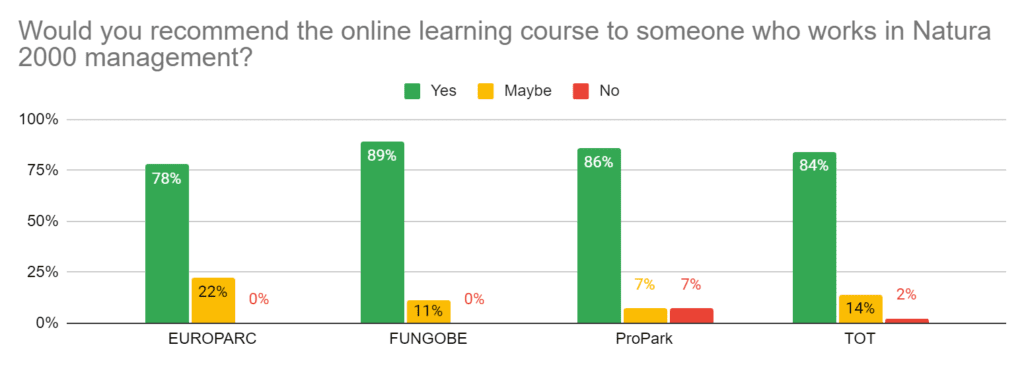
Recommendation level of the learning courses. The whole group of core project participants is identified by the label “TOT” (“total”)
Virtual Summer School
Planned as an in-presence Spring School (later as a Summer School) and scheduled for April (and then September) 2020, it was the learning component most impacted by the pandemic. It was re-scheduled for June 2021 and, therefore, turned into a Virtual Summer School.
Participants were very satisfied with the Virtual Summer School as well. Additionally, the organisation, provided by the project partners and TESAF as the lead partner for the activity, was rated very positively.
Most satisfaction was expressed regarding the following objectives:
- Improving stakeholders-engaging techniques and participation strategies;
- Improving knowledge about monitoring habitat types and species;
- Improving communication skills and knowledge about communication approaches.
Apart from that participants highlighted good organisation, qualified speakers, balanced programme, good variety of topics, interesting examples of Natura 2000 sites, and networking and interaction.
Recommendations
Another indicator of the effectiveness of the learning experience is the willingness to share and encourage colleagues and people working in the same sector to participate. 87% of the respondents said they were willing to recommend their course to others.
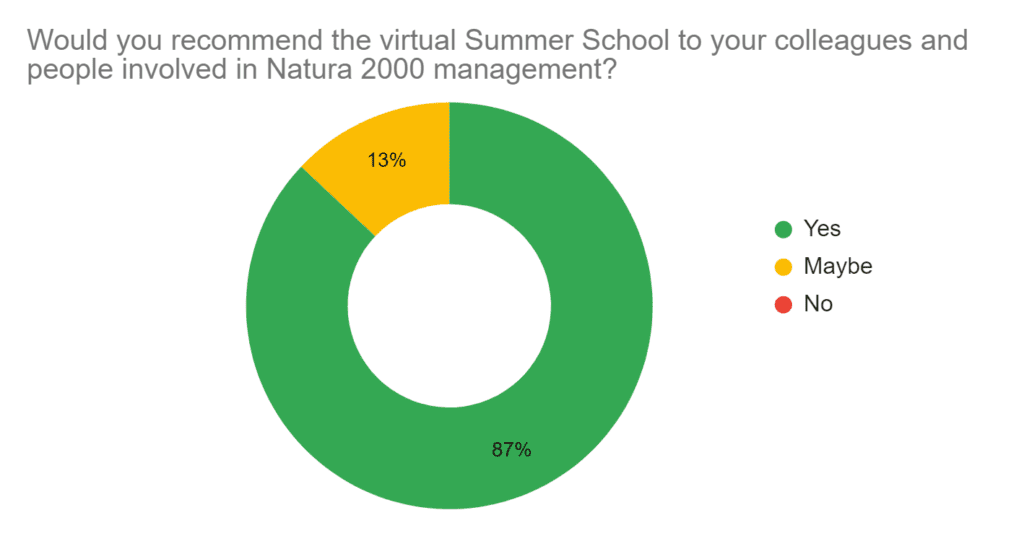
Participants’ intention to recommend the Virtual Summer School to people involved in Natura 2000 management
Participants expectations from the project
Based on participant’s feedback most expectations from the project were related to:
- Networking with other Natura 2000 managers (high expectations for 75% of respondents);
- Improving knowledge about Natura 2000 management practices (high expectations for 80%);
- Improving technical knowledge with online tools (high expectations for 67%).
Satisfaction levels
Satisfaction levels of participants were assessed against initial expectations, as well as against aspects or topics deepened by all learning courses, such as communication skills, stakeholder engagement techniques and participatory strategies. Overall, satisfaction is high for all components: this very positive feedback highlights the effectiveness and impact of the project itself. Slightly moderate satisfaction is shown in the increase of job opportunities, but considering it is the most powerful indicator to assess socio-economic impacts of the project, it is already a great achievement that 40% of respondents have at least a high level of satisfaction regarding this point.
Acquired competencies
Some of the competencies acquired by the core project participants include:
- E-learning skills; communication strategy; awareness and education;
- Stakeholder analysis and understanding; active listening; stakeholder engagement;
- Presentation skills; teamworking; audience understanding and targeting;
- Conflict management and solving; effective joint-working and collaboration; feedback giving and receiving;
- Negotiation skills; communication with social media; participatory techniques;
- Problem solving; decision making;
- Planning and organisation; scientific thinking;
- Conservation status assessment; operational planning
At the end of each module, the attendees were asked about their intention to apply the online learning tools to their work context. More than 75% of participants were willing to apply the tools during the courses.
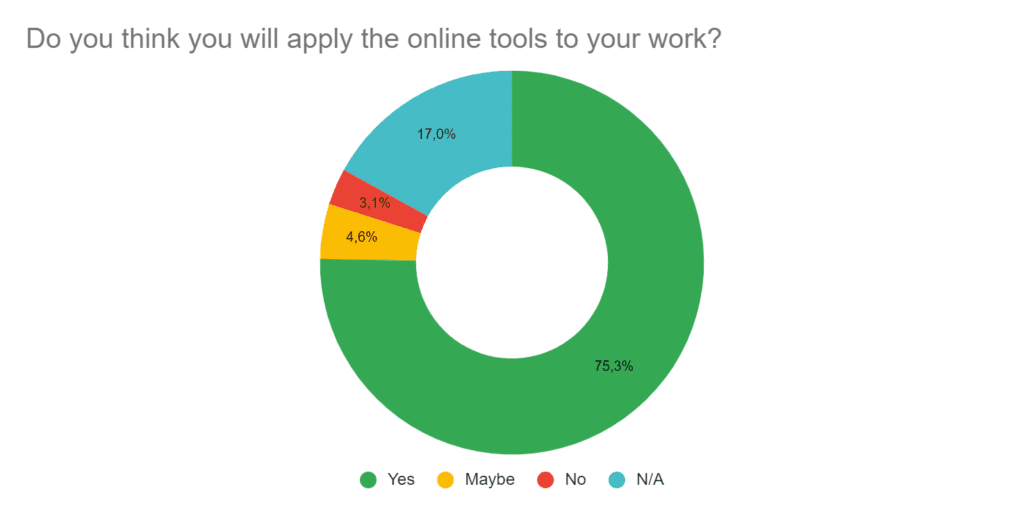
Participants’ intention to apply online tools to their work

Photo by Shane Rounce on Unsplash
What is described in the chart above in terms of intentions, was confirmed by the post project 6-month evaluation survey, where former participants were asked how they were applying the online learning. Overall, 96% of respondents started applying (or would soon) what they learned in their daily work. About half of respondents who benefit from learning in their daily work state that the learning experience was an inspiration for new activities.
New activities and impacts which are a result of the project include:
- New job opportunities
- New projects
- New collaborations
- New funding programs to apply
- New practices and activities useful for future funding applications
- Research and field studies
- New engagement techniques
- New communication strategies
- Production of communication materials
- New areas of work
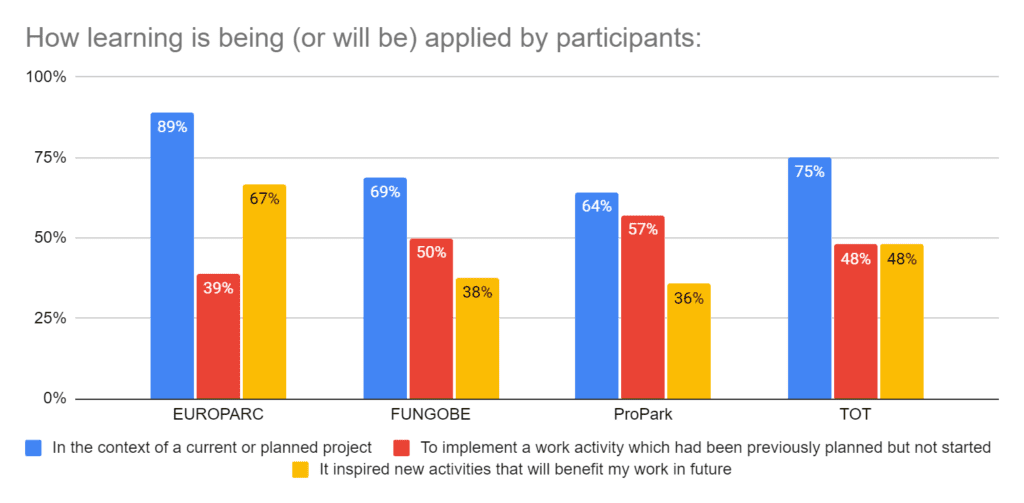
Participants’ application of learning *The whole group of core project participants is identified by the label “TOT” (“total”)
The LIFE e-Natura 2000 Smartphone App
The LIFE e-Natura2000 App is one of the most powerful learning and networking tools delivered by the LIFE e-Natura2000.edu project. It has been designed to enable Natura 2000 site managers and private landowners to connect, discuss and learn in an innovative way and to provide a continuous flow of relevant news, features and videos about the Natura 2000 network.
All of the users found the app very useful or useful, and some of the most frequently stated reasons they use it for are:
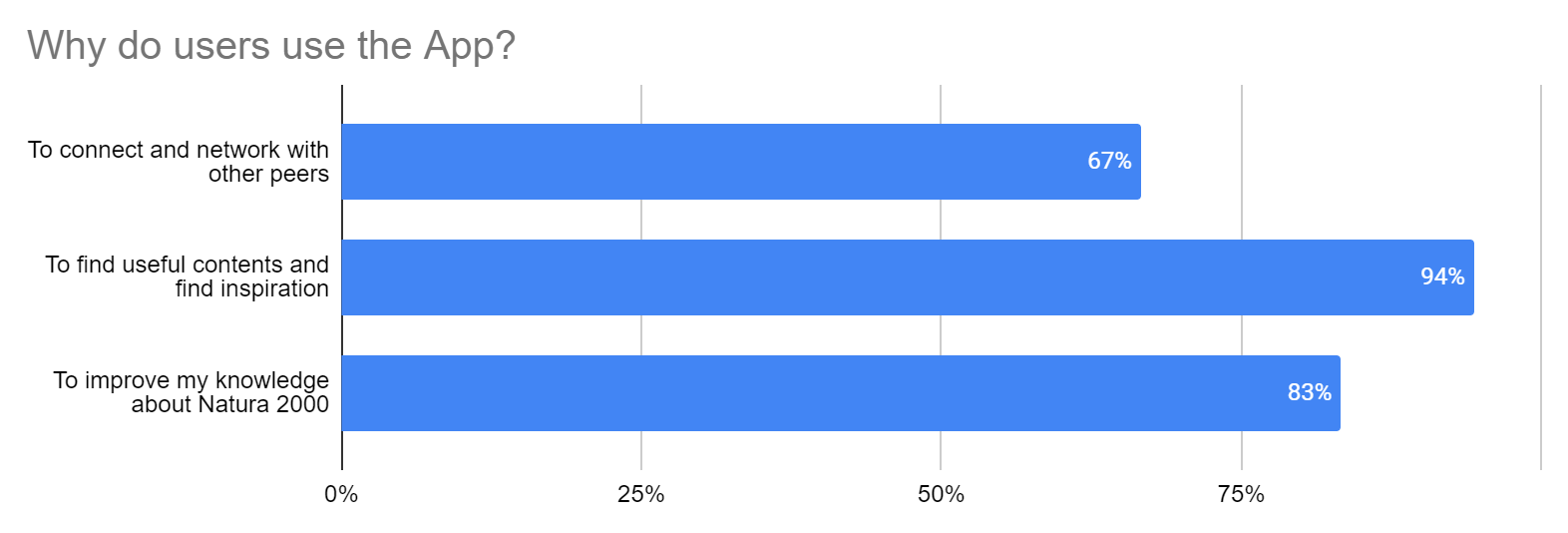
Reasons why users use the App
Challenges posed by the pandemic
Even though this project was significantly impacted by the pandemic, COVID-19 also showed how risks are often accompanied by opportunities: the courses were designed to be delivered primarily online before the pandemic started and this core aspect helped to overcome most difficulties.
The pandemic allowed people to see the benefits of accessing new structured content online.
Some of these benefits include:
- Online tools can be recorded and are available over a longer period of time
- Online tools allow for greater participation, also by participants who may not be able to take time off for travel;
- They decrease time spent away from home/work and costs and environmental impacts associated with travel;
- They can be very useful as we near a future in which more attention needs to be paid to the impacts of travel on the climate.
Conclusions & recommendations
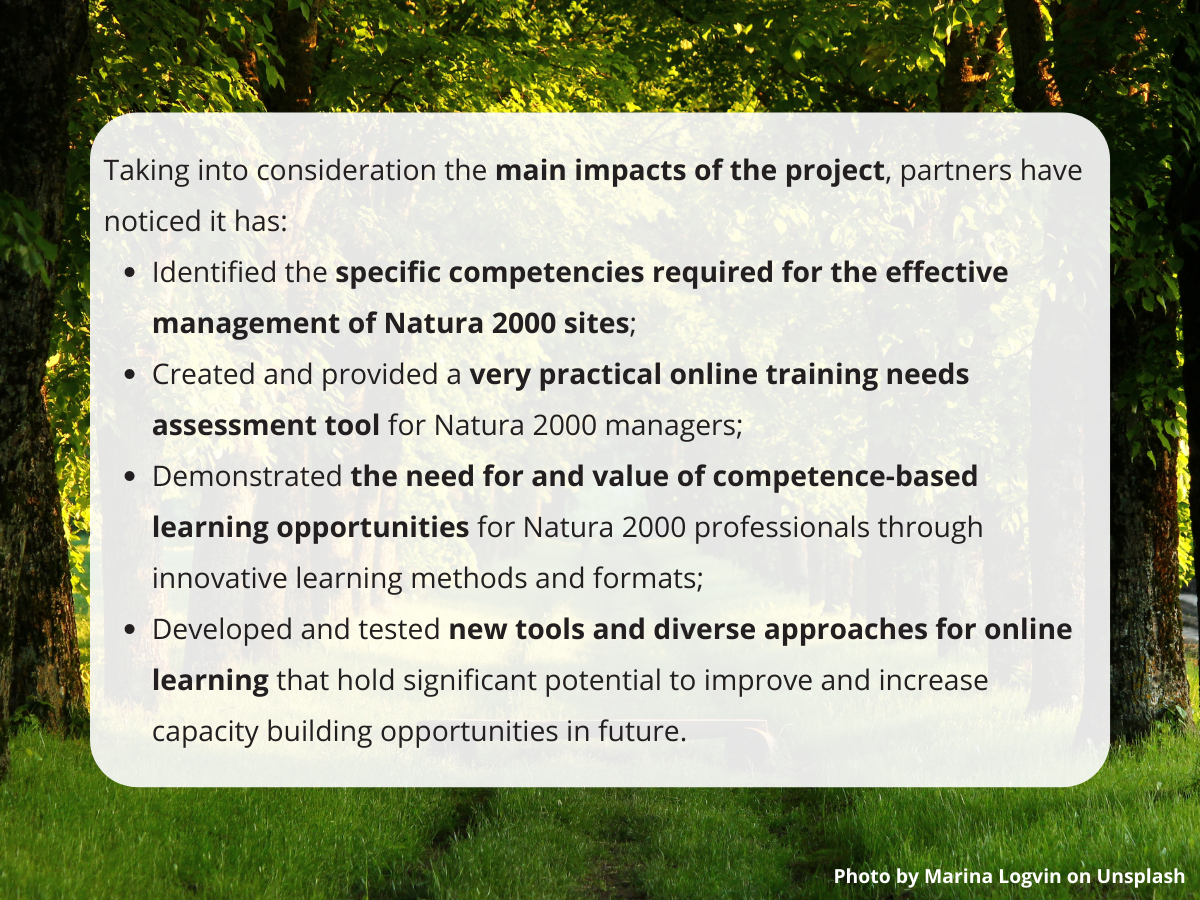
The main impacts of the LIFE.edu project
Other important impacts cited by the partners are that the project LIFE.edu has:
- Created momentum for and demonstrated the value of a larger scale follow-up project;
- Strengthened the links between academic and professional Natura 2000 managers;
- Extended partners’ networks (amongst LIFE e-Natura2000.edu partners and with project participants);
- Increased knowledge about Natura 2000 and its management challenges among all stakeholders (partners, participants, managers, landowners and project sponsors).
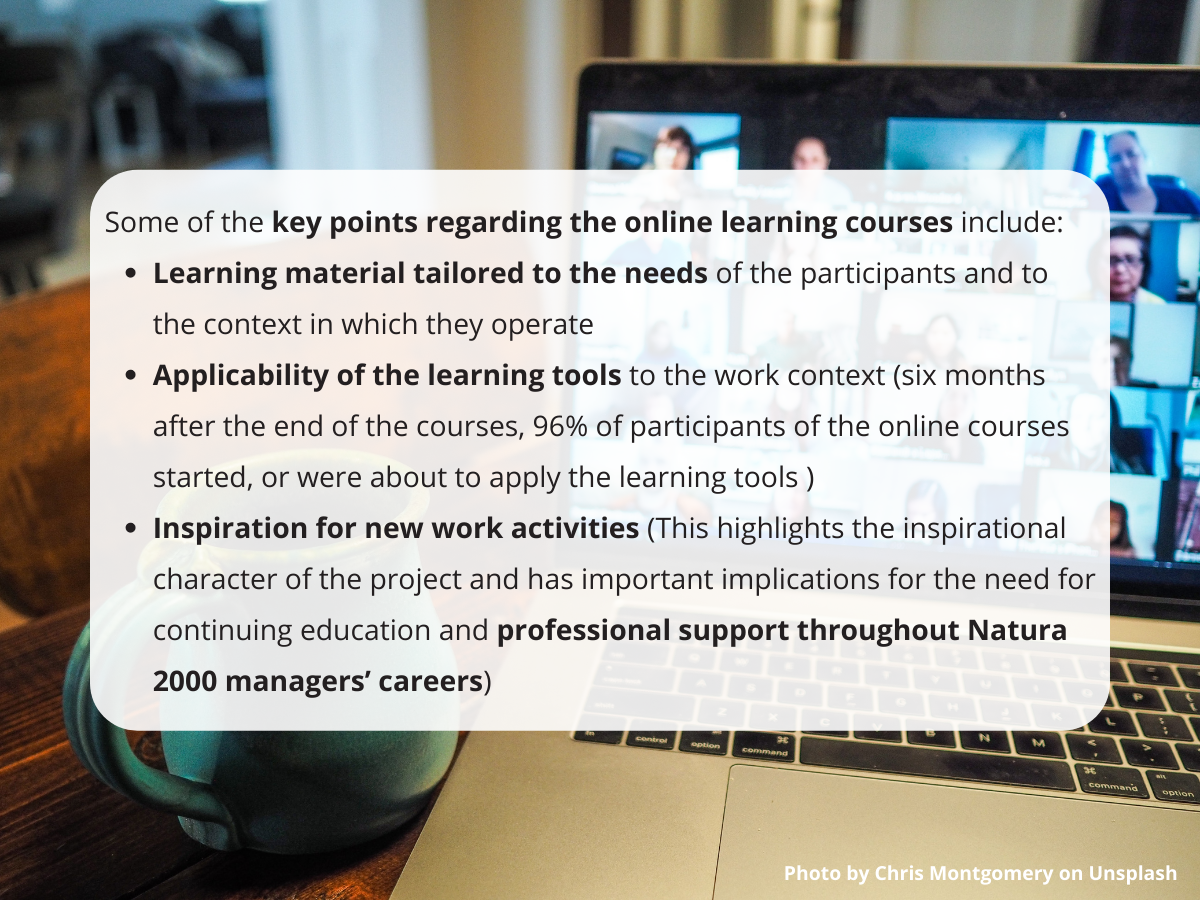
Life.edu key points regarding the online learning courses
If you would like to take a look at the detailed project report, you can download the full document here:
Virtual Summer School: Report on the Natura 2000 in practice
Between the 7th and 17th of June 2021 the “Natura 2000 in Practice” Virtual Summer School was held by LIFE e-Natura 2000.edu project partner, the Department of Land, Environment, Agriculture and Forestry (TESAF) of the University of Padova for managers of Natura 2000 sites.
The Virtual Summer School aimed to disseminate in-depth knowledge on innovative aspects related to the management of Natura 2000 sites and develop practical, technical skills among participants on the ecological and planning tools towards the appropriate management of these Protected Areas.
Adapting to challenges
Due to continuous regulatory restrictions and the uncertainties around COVID 19, the (Virtual) Summer School – originally planned as a face to face event – took place in June 2021. Field visits were modified into virtual field visits and several other materials were used and made available on the purpose-built Moodle.
Participants, trainers and partners involved
The Virtual Summer School had 27 Participants coming from a wide variety of European countries.
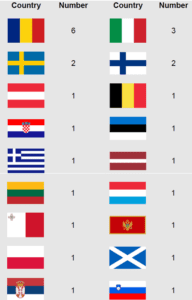
Virtual Summer School Participants’ Countries
A total of 10 trainers participated in the Virtual Summer School. They came from Italy, Romania, the UK, France, Spain, and the Netherlands, as well as various institutions including private companies, university, freelancers and private foundations.
All LIFE project partners were involved in the Virtual Summer School:
- TESAF and EUROPARC formed the main organising group and had trainers in the live learning sessions;
- FUNGOBE and ProPark provided one trainer each, and
- Kullaberg Nature Reserve and European Landowners Organization participated in the live learning sessions.
- Representatives of all partners accessed the Moodle page of the Virtual Summer School (TESAF 3, EUROPARC 2, FUNGOBE 1, ProPark 1, ELO 1, Kullaberg 3).
Interactive tools and engaging materials
A number of different tools were used to effectively convey all information during the Virtual Summer School. All materials (registrations, videos, documents, weblinks, forum etc.) were made available on the purpose-built Moodle and the live sessions were
conducted via Zoom.
MURAL, Zoom Pool and Mentimeter were used to stimulate participation and sharing of ideas. Virtual field visits were presented by means of specifically created videos. These videos regarded monitoring and management of habitat types and habitat of species in two Natura 2000 sites (“Colli Euganei – Monte Lozzo – Monte Ricco” and “Grave e Zone umide della Brenta”).
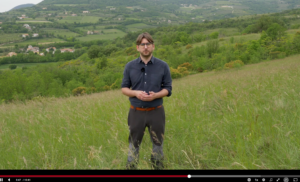
Virtual field visit video
What topics did the virtual school focus on?
The aim of the Virtual Summer School was to train public and private staff in the management and planning of Natura 2000 sites, applying innovative tools to adhere to the requirements of the Habitats Directive covering Natura 2000 sites.
The main topics addressed in the different parts of the Virtual Summer School and the live training sessions were:
- conservation status,
- conservation degree and favourable reference values of habitat types and species
- pressures and threats
- article 17 reporting
- site conservation objectives and measures
- restoration and monitoring actions
- field surveys and remote sensing
- facilitation and participatory processes
- community outreach
- communication and collaboration
In the first five days, the focus was given to applied technical issues. On days 6 and 7, the trainers focused on aspects related to social sciences. One session, held on the last day 8, focused on technical issues but also showed the importance of communication and participation by stakeholders.
This experience highlighted the importance of and interest in deepening methods towards improving knowledge and awareness on Natura 2000 for managers.
You can find the full Report with a detailed description of the Virtual Summer School in all of its stages, as well as additional materials regarding the programme, here: Virtual Summer School – Report – online version-FINAL 18.08.21
LIFE e-Natura2000.edu: Socio-economic impact assessment report
The LIFE Preparatory project, LIFE e-Natura 2000.edu gathered participants from across the EU in order to find the best solutions for existing training structures and future capacity building projects for Natura 2000 managers. The Socio-economic impact assessment report, aims to demonstrate the impacts of the project whilst showing why long-term, tailor-made capacity building programmes are crucial for the improvement of the effectiveness of Natura 2000 management and its positive achievements on the ground.
Project from a socio-economic angle
The LIFE.edu project aimed to actively involve site managers, private landowners and rangers, whether they are from park authorities or non-governmental organisations, to improve the knowledge, skills and attributes they need as Natura 2000 managers.
This report provides direct insight into partners’ and participants’ project-related experiences and describes the relationship between the socio-economic impacts of competence based management capacities and LIFE e-Natura2000.edu project outcomes.
Positive impacts of the project
This project’s beneficial impacts are represented in several ways:
- 50% of participants in the project training actions will launch new activities linked to Natura 2000 management capacities as a direct result of the project.
- Training activities & innovative tools have proved to be very useful, easily replicable and up-scalable
- Project partners have or will modify their training frameworks to incorporate the project tools and outcomes.
- Communication and information about Natura 2000 has and will continue to improve from Kullaberg Nature Reserve’s participation as a project partner.
Training activities & innovative tools
Online learning has proved to be a very useful experience and an effective way of reaching greater numbers of participants. Additionally, six months after the end of the courses, 96% of participants of the online courses started to apply the learning (or would soon) to their work context. This demonstrates that the project’s competence-based approach is, not only, immediately applicable, but it is replicable in the short term for individuals and also in the medium term for teams and organisations.
Trainees said:
All the digital documents, presentations, references, videos have been very useful and I am already using them as a working material for other projects, teaching, and sharing.
Sowing seeds for the future: creating a European capacity building network
The Kullaberg Nature Reserve experience
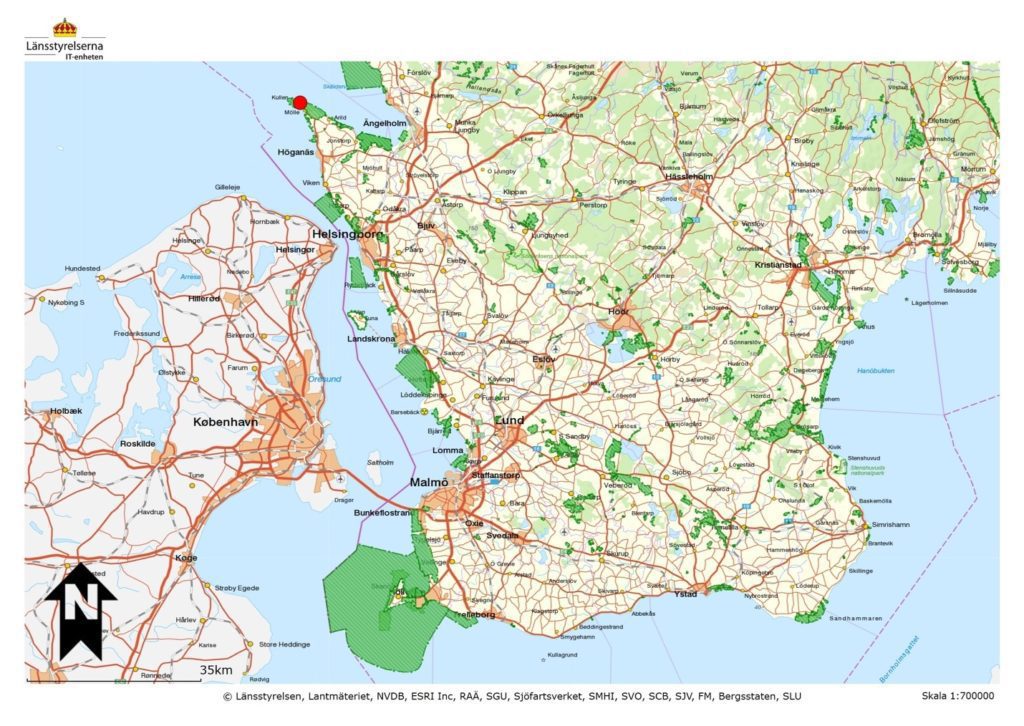
Kullaberg Nature Reserve
Kullaberg, a Nature Reserve located in the northwest corner of Scania province, and the first Swedish protected area to achieve the European Charter of Sustainable Tourism has been a testing ground for most of the LIFE e-Natura2000.edu project actions.
This report delivers many useful insights from their experience of participating in the project, as well as all the positive impacts of LIFE.edu has brought to them on an individual, management body and the territorial level.
Kullaberg managers said:
I am using some tools introduced in EUROPARC online course: ‘Competent Inclusive Communication for Natura 2000 Managers’ in my daily work.
Following participation in the online course offered by EUROPARC within LIFE.edu, Kullaberg Nature Reserve staff reached out to the Swedish University of Agricultural Sciences (SLU) aiming to explore opportunities for collaboration in order to start implementation of Healthy parks, Healthy People Programme in Kullaberg Nature Reserve. Upon pitching the idea to SLU researchers, Kullaberg has drafted a pilot project proposal and is currently working on securing external funding to implement the initiative (as of June 2021).
The main objective is to develop (and test) a new model promoting outdoor and nature-related activities among healthcare professionals and social care workers in need of mental and physical recovery due to the increased workload caused by the COVID-19 pandemic. Furthermore, the aim is to build a collaborative network of stakeholders to establish an innovative set of services for promoting public health.
Apart from Kullaberg, many other partners have recognised the potential for further development that LIFE.edu inspired.
The project has helped to develop and improve training and educational programmes run by FUNGOBE for protected area managers, and has been influential in the acquisition and refinement of new online teaching capabilities.
The University of Padova has recently launched a curricular course in Natura 2000 management, taught by the scientific coordinator of the project for TESAF. It is very innovative and almost unique in the current Italian university-level educational offer.
All activities of the LIFE e-Natura2000.edu project had and will have an important impact on the preparation and methods used in the specific module Natura 2000 management.
Significance of the project
From a socio-economic perspective, the project has had a clear impact at various levels:
At individual level
- better employment perspectives
- improvement of communication skills
- expansion of job networks
- increase of personal motivation
At organisational level
- project’s partners incorporated the project’s methodologies and tools into their training frameworks to improve their results with lower execution costs
- their networks have been extended
- their access to Natura 2000 info is better and faster, which results, among others, in better access to new funding opportunities
At site level
- increase in social acceptance of Natura 2000 conservation policies
- access to new funding green job opportunities for local communities
More details and positive effects of the LIFE.edu project can be found in the full document.
Download the Socio-Economic Impact Assessment Report:
Click on the image to download the full document


Download the PDF version of the document here:
Socio-economic impact assessment report
Download the PowerPoint version of the document here:
